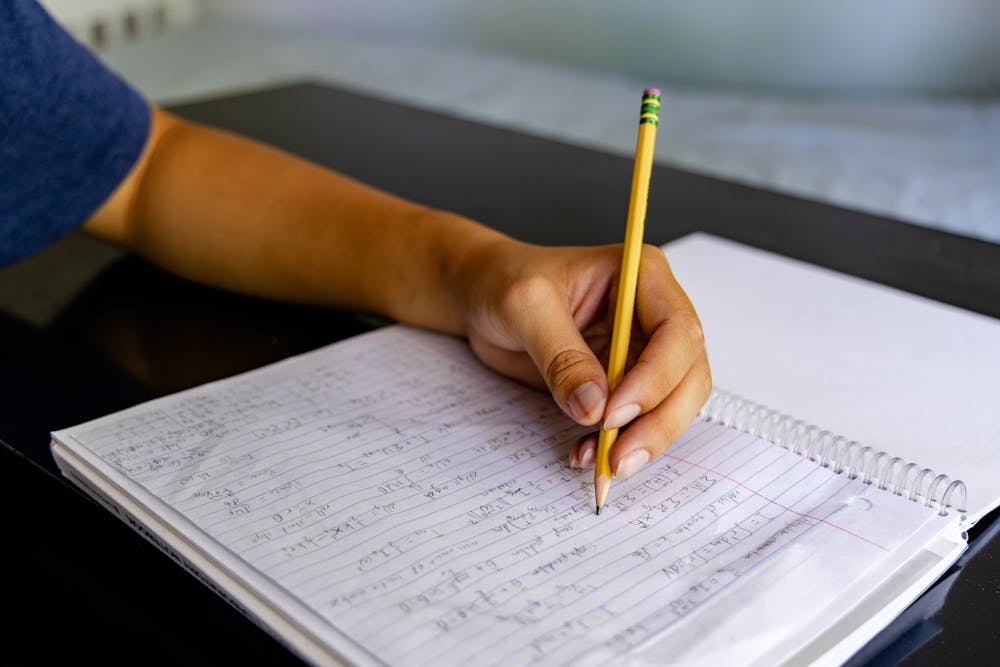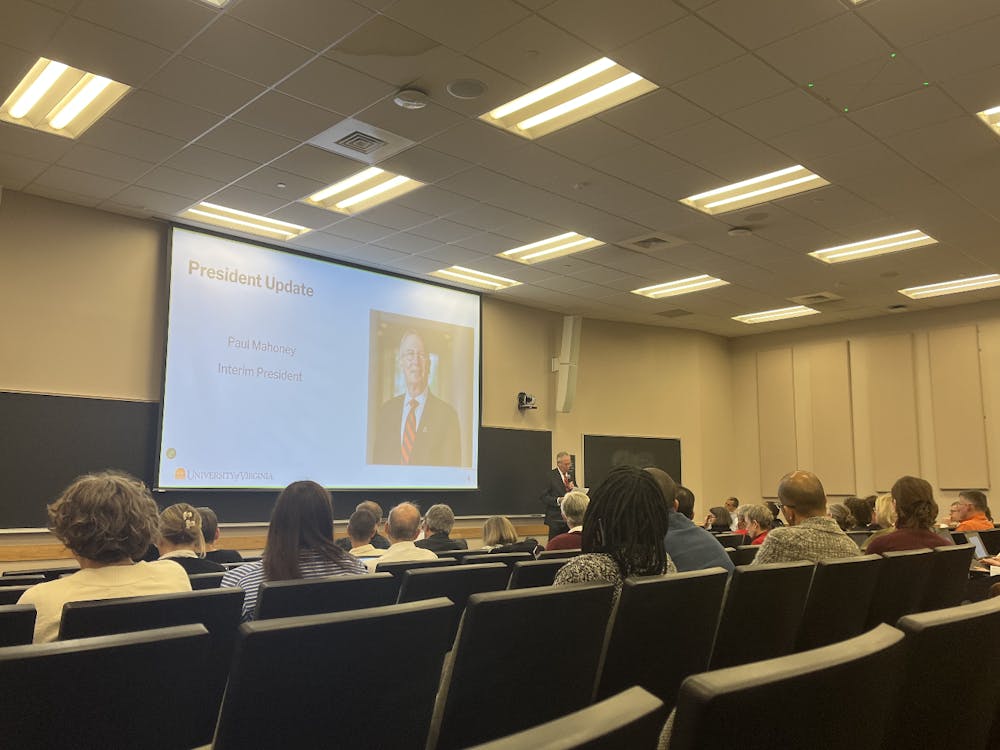In stark contrast to the conditions of the pandemic, in which the University required constant technology use to continue its courses, the University began piloting new no-screen classes — coined technology sabbaticals — this summer. The classes give students an opportunity to learn a subject without using traditional technology with the goal of encouraging students to “develop a more thoughtful relationship with their devices,” according to the University’s Summer Technological Sabbatical website.
Several of these classes also require that students spend a certain amount of their free time outside of class without using technology, attempting to simulate University life entirely without technology — the way it was just a few decades ago.
The idea of no-tech classes at the University emerged after University President Jim Ryan read a New York Times opinion essay about similar courses at the University of Pennsylvania, according to Brie Gertler, vice provost for academic affairs. The essay cites a 2023 study that identified a positive correlation between extended screen time and levels of depression, among other studies.
“It's clear that spending time away from technology and social media has psychological and cognitive benefits,” Gertler said in a statement to The Cavalier Daily. “But while people understand this, they also find it hard to step away from their phones.”
The first of the summer’s tech sabbatical classes — Reading Climate and Humanitarian Crisis Fiction, taught by English Prof. Adrienne Ghaly — wrapped up in the first summer session, which ran from May 20 to June 14. Three more tech-free classes are underway for the third summer session, which runs from July 15 to August 8.
These three classes are The Contemporary Essay, taught by English Prof. John Casteen IV; Making Books: Introduction to Book Editing and Production, taught by English Writing Prof. Heidi Nobles and Neural Mechanisms of Behavior, taught by Psychology Prof. Adema Ribic. According to Nobles, the professors who have agreed to teach a technology sabbatical class also agree to teach the class again at some point in the next 12 to 18 months.
Ghaly, who taught this summer’s first technology sabbatical class, said she had students read in their tech-free time and focus on improving their attention span and comprehension. According to Ghaly, this approach had a positive impact on the students’ performance during in-class discussions.
“Our seminar discussions were incredibly rich, engaging and worked at a very high level because students really absorbed the material, which was great,” Ghaly said in a statement to The Cavalier Daily.
After acquainting herself with the process of tech-free teaching, Nobles said the adjustment to learning without technology is a challenge for the professor as well, not just the students. According to Nobles, she has spent much of her career using digital technologies for different steps in the book making process, such as Adobe InDesign to lay out pages. To prepare to teach this summer, she recently completed a four day course that focused on physical book publishing methods.
Students of that physical book publishing course, taught by the Virginia Center for the Book — an organization dedicated to promoting literacy and reading across the Commonwealth — completed and bound eight books, utilizing a variety of bookbinding techniques.
While students in Nobles’s course will not be expected to do the same, she said she wanted to be as familiar as possible with the different publishing methods. She said students will have the opportunity to consider aspects of book making that are not possible online, such as the weight of the paper or the way the pages feel to the touch.
“In this class we're gonna think about how the physical book [changes] the way we're reading,” Nobles said.
According to Nobles, her usual book making and publication class uses digital software to create the book, including platforms like InDesign or Microsoft Word. When using those platforms, however, most of the editing and design parameters are already set ahead of time, which Nobles said limits the potential for creative methods. Nobles said that while the old-fashioned way of book making is not something that everyone should revisit, preparing to teach her tech-free class has deepened her appreciation for reading certain impactful books.
“When you're [editing] each other's work, you're all inventing the world together,” Nobles said. “It’s an amazing thing you get to do, but most people don't ever have the chance to do it.”
Nobles’ book making course includes a provision that students will be encouraged to spend four hours per day away from screens, in addition to the time they spend in class. Nobles said this stipulation was inspired by her own experience in the technology-free book making class.
“It felt like such a luxury to have that time protected and to be able to step away,” Nobles said. “The hours felt like they flew by.”
Despite the benefits, professors teaching technology sabbaticals noted several difficulties with crafting tech-free lesson plans. According to Ribic, who teaches Neural Mechanisms of Behavior, adapting a curriculum to a no-screen format is difficult for science classes that usually rely heavily on technology.
“We typically incorporate a lot of technology in class… and [look] for solutions online,” Ribic said. “This time, I wanted to have the students primarily run simple experiments without the assistance of technology.”
According to Ribic, using the internet to create designs for experiments and predict potential errors is typically an integral part of her neuroscience class, and a lack of technology forces students to change this approach. To facilitate this approach, Ribic said she will switch to analog tools like stopwatches and lab notebooks — tools she did not already have on hand.
And while some professors are also discouraging technology use outside of class time, Ribic said using technology to communicate with friends and family, especially for those who live far from home, is necessary for her and many of her students.
When looking to the future of a tech-free class model, Ribic said she is hesitant to make any hypotheses. Instead, she said she would prefer to focus on the present opportunity of making the class more enjoyable for her students
“I try not to develop hypotheses generally,” Ribic said. “You’re bound for disappointment.”







